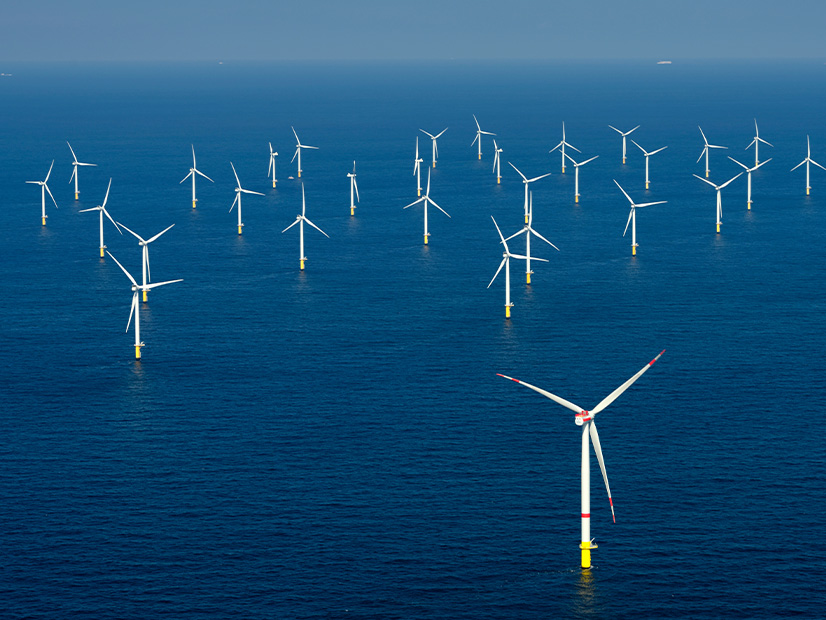
After ISO-NE issued a comprehensive study in April looking at possible regional decarbonization solutions, there was hope around the region’s energy and environmental sectors that it would jumpstart the states into action.
Among the study’s key findings was that the status quo — New England states largely continuing to individually, unilaterally advance their own decarbonization policies through procurements — would be more costly for the region than any of the modeled alternatives, including carbon pricing, a forward clean energy market (FCEM) or a hybrid of the two.
But the gears are turning slowly in the states, which one regulator compared to aircraft carriers chugging out to sea.
And the approaching gubernatorial elections may also have a paralyzing effect, pushing the earliest point for decisive action beyond November and into 2023.
In interviews with RTO Insider, three New England state energy officials defended their deliberative processes and urged patience from those who are pushing them to move faster.
“I think the thing I would emphasize is what a dynamic moment we’re in, in terms of this longstanding question of harmonizing markets and decarbonization mandates,” said Katie Dykes, commissioner of Connecticut’s Department of Energy and Environmental Protection.
She pointed to FERC’s recent approval of an ISO-NE plan to phase out the contentious minimum offer price rule, as well as the action in Washington over the past few weeks, culminating in President Biden signing the landmark Inflation Reduction Act, with new incentives and support for all sorts of clean energy technology.
“I know that there’s a lot of eagerness from stakeholders to hear the states’ views on next steps,” Dykes said. “At the same time, there’s a lot going on in the current moment that needs to be taken into account with which solutions make the most sense.”
June Tierney, commissioner of the Vermont Department of Public Service, said that regulators are tasked with taking a comprehensive view and carefully working through complex issues.
“When the Navy deploys for a military action, they don’t just all hop on the carrier and go to battle. They’re accompanied by a flotilla, and a lot of the flotilla are speedboats, things that can maneuver more nimbly and move out ahead and show the way. And then comes the carrier in the wake,” Tierney said in an interview.
“My point is, there are many stakeholders in this process who do move more quickly, more nimbly. They help pull us along. And we’re the aircraft carriers, the six states. We move slowly but steadily,” Tierney said.
Those pulls and pushes have come from environmental advocates and the renewable industry, but also from generators more broadly.
“The inaction of the moment is a choice in and of itself to maintain the status quo,” said Dan Dolan, president of the New England Power Generators Association in an email to RTO Insider. “That is the one pathway that the states, generators and ISO-NE all agreed was the worst possible outcome.”
Dolan urged the states to forge ahead and not fear political vulnerability.
“The reality is that with all six states in the midst of gubernatorial elections, a final decision is likely going to have to wait,” he said. “While I respect the politically awkward timing of the moment, I sincerely hope the next several months are not lost to the campaign season, and that important work can still progress.”
Tierney said that it is progressing.
“We’re all showing up to our meetings. We’re all having the conversations,” she said. “What we’re doing is trying to figure out what can we do while we await election results.”
Wrestling with FCEM Governance Questions
While a straight up price on carbon has support in large swaths of the region’s energy industry and inside ISO-NE, the states have uniformly said that its political challenges make carbon pricing a nonstarter.
Instead, they’re eyeing an FCEM, a centralized auction in which sellers (producing energy through means including wind, solar, nuclear, hydro) and buyers (states, cities, companies, retailers, utilities and more) would exchange clean energy credits.
An FCEM could be enacted on its own or in a hybrid configuration along with a slimmed down carbon pricing mechanism. It could bring New England’s clean energy procurement more into concert, instead of the states relying on individual contracts.
But because an FCEM would be a brand new market structure, there are a host of governance and structural questions that the states and ISO-NE would have to hash out.
“Would implementation of these measures be something that would be supported within a FERC-jurisdictional tariff advanced by ISO-NE, or would they require individual state legislatures to authorize them?” Dykes said. “These are important questions, and we’re taking our time to think through it and looking at the best model.”
ISO-NE CEO Gordon van Welie has warned that FERC might see an FCEM as discriminatory and likely to lead to litigation. (See NE States, ISO-NE Start to Wrestle with Next Steps on Pathways.)
But Tierney said that her observations of the current FERC commissioners suggest otherwise.
“Sometimes I think what has been missing here is that FERC has been very intent on ensuring that nobody gets out in front of the states,” Tierney said. “I am going to be bullish on how FERC might respond to an FCEM mechanism that has the support of the states.”
Massachusetts is working on developing a proposed framework for an FCEM, which officials there hope can be a jumping-off point for regional discussions in the next few months.
“Massachusetts believes an appropriate next step is to develop a design structure that addresses detailed mechanics along with defining governance and state involvement,” Patrick Woodcock, commissioner of the state’s Department of Energy Resources, said in a statement to RTO Insider. “To move away from the state-based procurement process into a regional framework will require full confidence from the states in their role in decision-making and alignment with state laws.”


